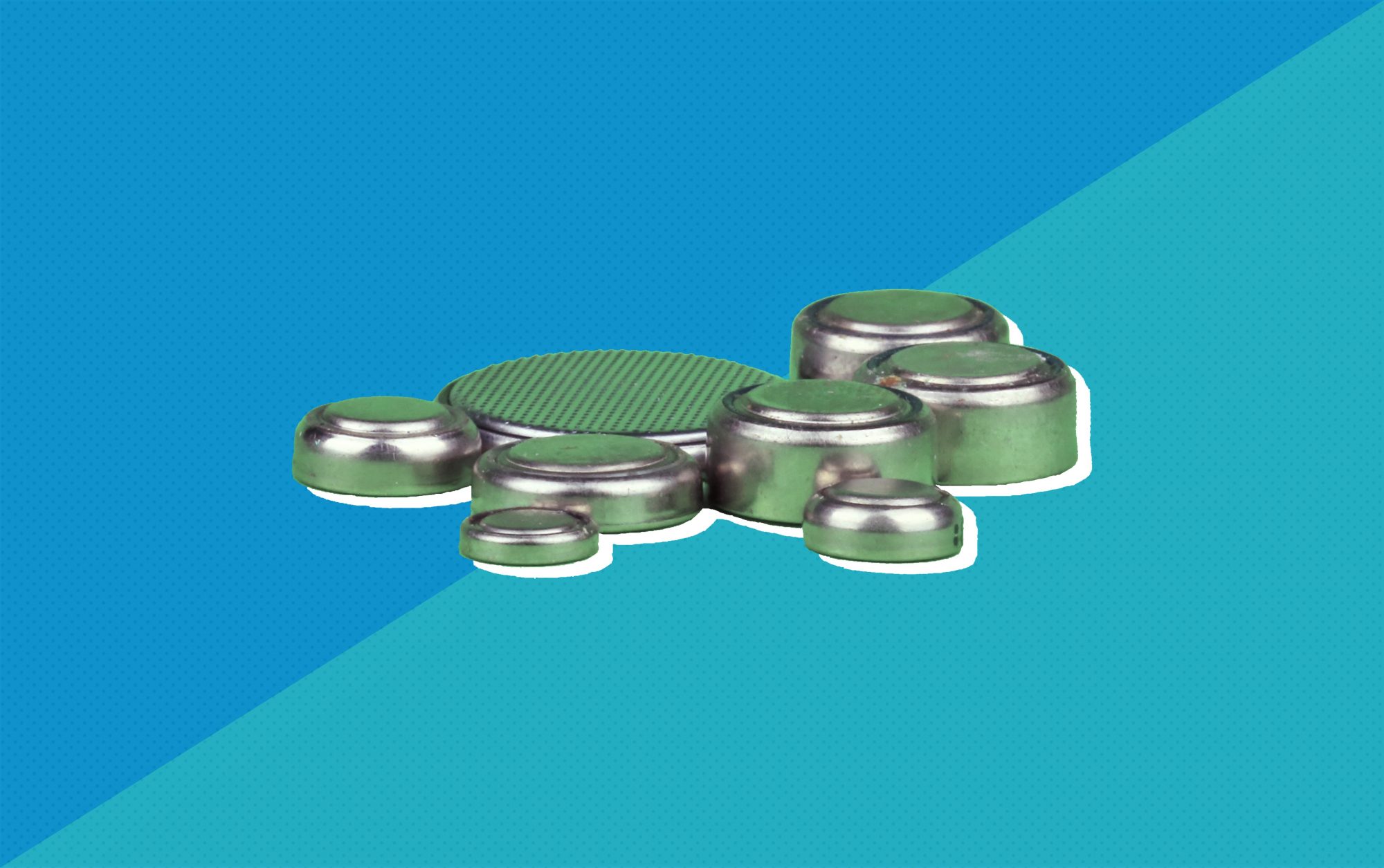It was a day like any other until Ta'Sha Garrett, a mom in Indiana, noticed something off with her 1-year-old son, Mahziere.
"That day I had picked his brother up from school and he was really lethargic," Garrett told Good Morning America (GMA). "Everything about him was moving slow. He ended up sleeping on the car ride home."
Prior to this, Mahziere had been acting like any other toddler: playing, laughing, and eating well. Suddenly, though, his breathing was off. That's when Garrett heard her son whimpering in the other room and noticed bubbles coming out of his mouth. Mahziere was immediately taken to the local hospital—and that's where the big surprise came in. After an X-ray, doctors found that the boy had accidentally swallowed a 22-milliliter lithium battery (aka a button battery that you probably have in your remote or kid's toys) that had to be removed with surgery.

"[The surgeon] brought me the battery and I broke down," Garrett told GMA. "I knew the severity of swallowing batteries. I didn't think that would happen to us… I'm really careful when it comes to things like that."
Mahziere wound up spending a week and a half in the hospital but is doing well. Still, this family's scare is a reminder of just how important battery safety is—and how quickly things can turn dangerous.
And another recent incident caused another family a similar scare. According to a report from BBC, a baby named Sofia-Grace Hill began refusing solid food when she was 11 months old. As a parent of toddlers, I get that this probably doesn't seem like a huge deal to the outside world (if only I had a dollar for every time one of my children went on a food strike…). But you know what they say: Sometimes parents can look at their child behaving in a way that seems completely "normal" and just know something is off. That's what Sofia-Grace's dad, Calham, experienced.
After multiple medical visits, the cause of this baby's symptoms was finally discovered. Her father was shocked to learn Sofia-Grace had swallowed a button battery. The object had been lodged in her throat for four months.
"I was gutted when I saw it and angry at myself. I blamed myself, but now I realize there was nothing we could have done to know," the father said, according to BBC.
Battery Accidents Are More Common Than You Think
If Garrett's story has you saying, "that could never happen to me," think again. Turns out that more than 6,300 children are seen in emergency rooms each year after ingesting a battery, according to Emily Samuel, program director at Safe Kids Worldwide, a nonprofit child safety organization.
"Swallowed batteries burn through a child’s esophagus in just two hours, leading to surgery, months with feeding and breathing tubes, and even death," reports the National Capital Poison Center (NCPC).
Even though ingesting a button battery could be totally benign, children who show no symptoms at all can develop serious complications later—including damage to the esophagus or airways.
And families staying home during the pandemic has increased these scary accidents, according to battery company Duracell, which has teamed up with the American Academy of Pediatrics (AAP) to help keep children safe by expanding the "Power Safely" program. "We're all spending more time in our homes, and there are devices everywhere, like remotes, key fobs, and thermometers that may include small lithium coin batteries that are a hidden danger," pediatrician Ben Hoffman, M.D., F.A.A.P., chair of the Council on Injury, Violence, & Poison Prevention of the AAP said in a press release.
That's why the company is adding a bitter coating to lithium batteries to try to make them less tempting to kids to put in their mouths. "Secure packaging and product innovations like a bitter coating offer additional layers of safety to help protect children," Dr. Hoffman explained.
How to Keep Young Kids Safe
With children under the age of 5 at the greatest risk of accidentally swallowing a battery, it's important to keep in mind some battery safety tips that could protect your little ones:
If you notice any symptoms that might mean your child swallowed a battery—like coughing, drooling, or discomfort—call the National Battery Ingestion Hotline (800-498-8666) right away. When in doubt, go to the emergency room immediately.
Here's a tip: Save the number for the National Battery Ingestion Hotline in your phone right now so you won't have to search for it in the case of an emergency.
If your child has swallowed a battery, it's important to act fast: Call the National Battery Ingestion Hotline at 800-498-8666 immediately. Avoid letting your child eat or drink until an X-ray can be performed. Batteries in the nose or ear also must be removed immediately to avoid permanent damage.





